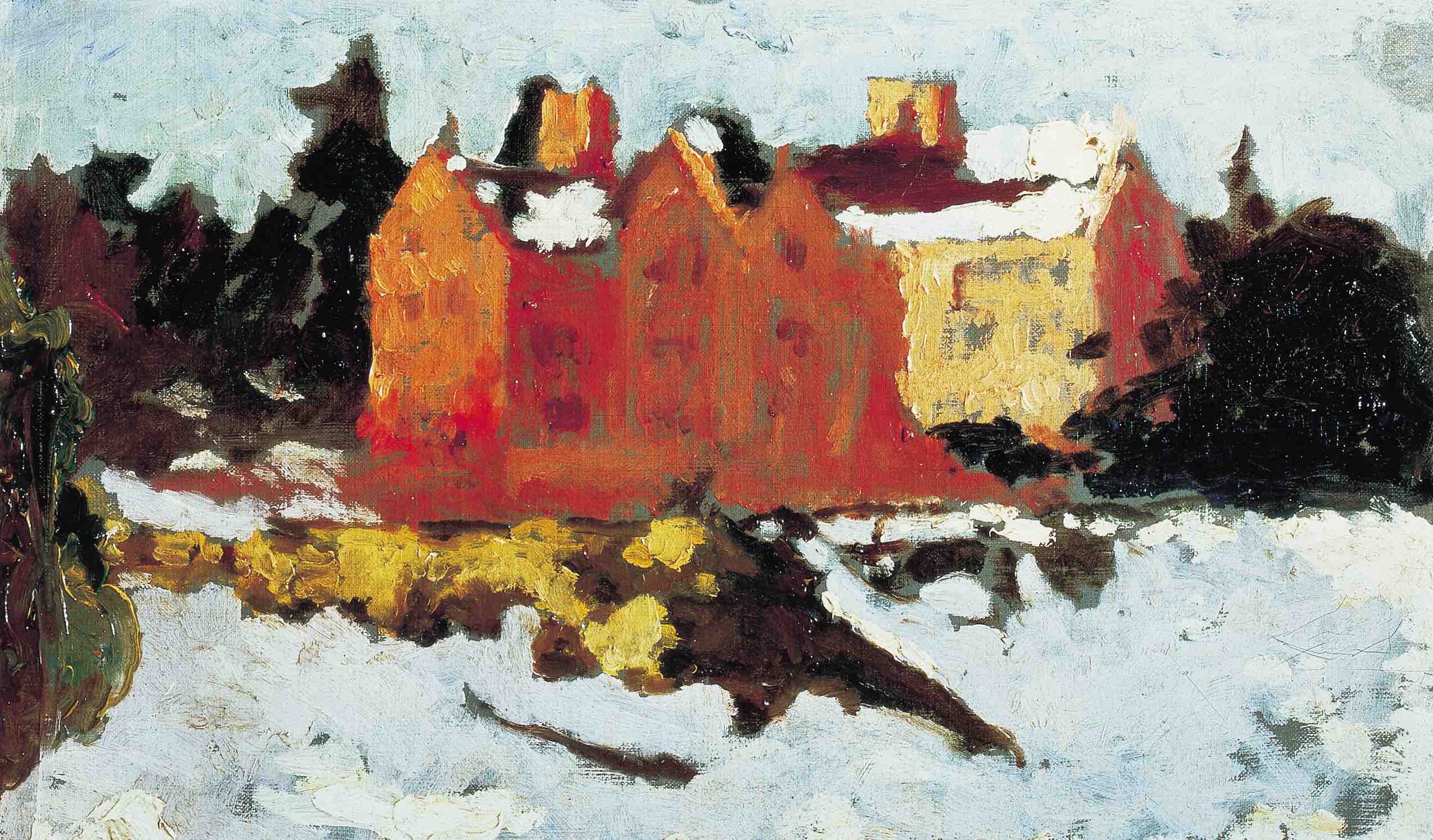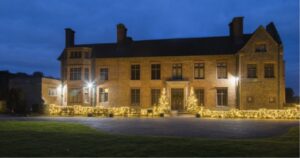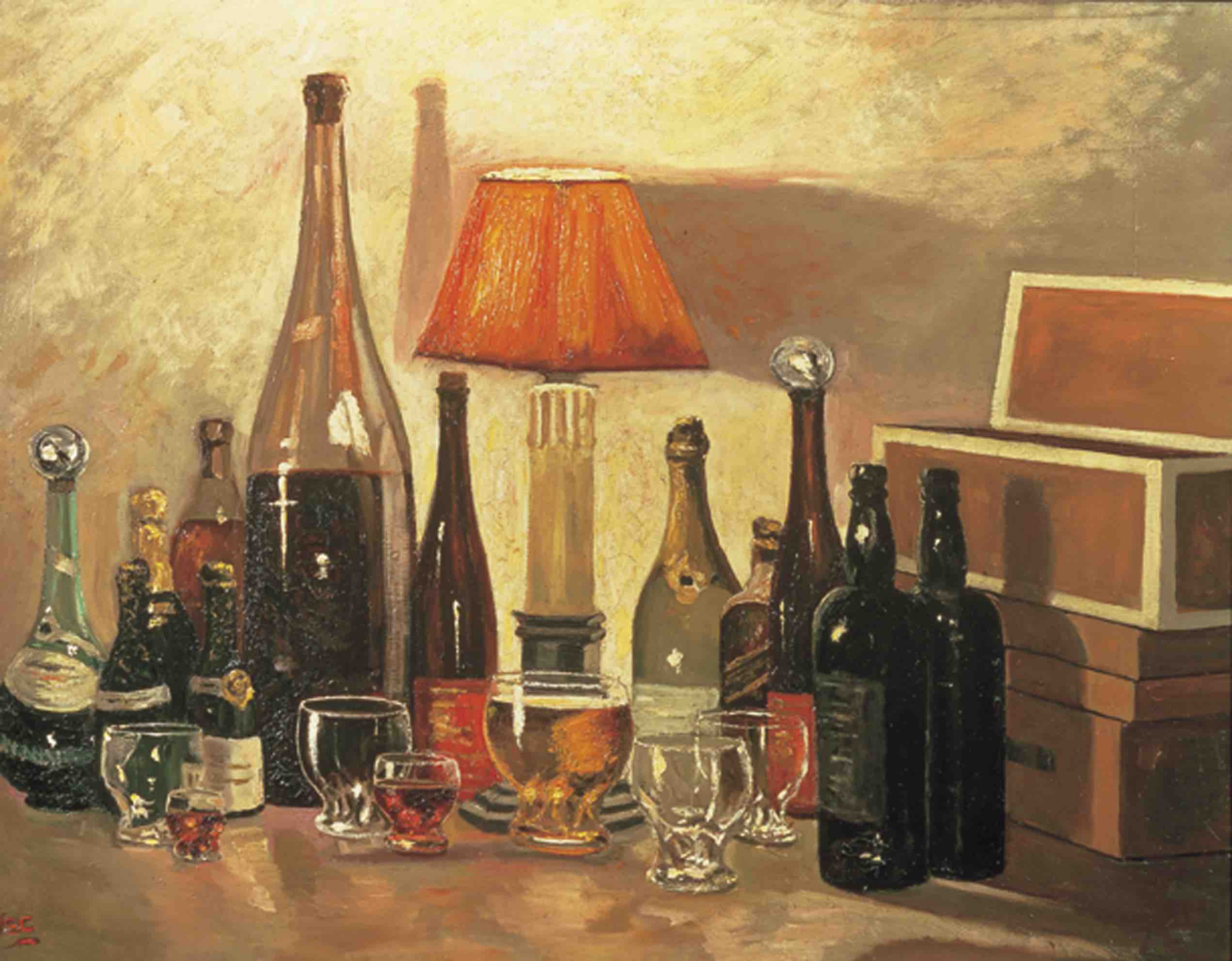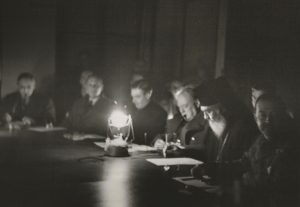
Churchill’s Christmas, 1882-1947: Halcyon and Sterner Days
Merry Christmas ….. Happy Hannukah
“Churchill’s Christmas” is excerpted from a two-part article for the Hillsdale College Churchill Project. For the complete text with footnotes, please click here. To Churchillian colleagues, and those who have encouraged and supported our Churchill work at Hillsdale College so many years: thank-you for being our friends.
Washington, 24 December 1941
“Let the children have their night of fun and laughter… Let us grown-ups share to the full in their unstinted pleasures before we turn again to the stern task and the formidable years that lie before us, resolved that, by our sacrifice and daring, these same children shall not be robbed of their inheritance or denied their right to live in a free and decent world. And so, in God’s mercy, a Happy Christmas to you all.” —WSC
“My juvenile friends…”
Churchill’s ninety Christmases saw family joy interspersed with loneliness and separation, owed to a stern sense of duty. The festival was not always a joyous time, but it always illustrated Churchill’s sensitive, caring nature.
Young Winston wrote his first letter in January 1882. He was seven, celebrating Christmas at Blenheim, minus his parents: “My dear Mamma, I hope you are quite well. I thank you very very much for the beautiful presents those Soldiers and Flags and Castle they are so nice it was so kind of you and dear Papa I send you my love and a great many kisses.”
When he was home, he was a handful. Reports of his mother’s disinterest are exaggerated. Lady Randolph was often absorbed in the lives of her two sons, if sometimes exasperated. In 1891 his parents planned to send him to France to polish his French over the holidays. Winston erupted: “I am forced to go to people who bore me excessively…. I should like to know if Papa was asked to ‘give up his holidays’ when he was at Eton.”
His mother angrily returned his letter unread, only to reap the whirlwind: Never, he replied, would he write her a letter of any length, “as in my letter’s length I can perceive a reason for your not reading it….I expect you were too busy with your parties and arrangements for Christmas.”
“Are gentlemen all fox hunting?”
Childhood frustrations were forgotten after his father’s untimely death in 1895. Now his mother was his ardent facilitator. As she aged her feelings deepened, along with her desire to have her sons with her at Christmas. Many times this was not to be. Winston was a soldier and war correspondent now, consumed by duty and ambition.
In 1899 in South Africa, he escaped from a Boer prison camp. He spent Christmas Eve at British Commander General Buller’s headquarters in Chieveley. He awoke Christmas day in a hut a few hundred yards from where he had been captured. His thoughts were not of good will toward men.
Cabling a column to the Morning Post, he urged the dispatch of more troops to the Boer War: “More irregular corps are wanted. Are the gentlemen of England all fox hunting? Why not an English Light Horse? For the sake of our manhood, our devoted colonists, and our dead soldiers, we must persevere with the war.”
This was not received with pleasure back home. He recalled later that a London acquaintance cabled: “Best friends here hope you won’t go making further ass of yourself.”
But two years later, on an extensive lecture tour of North America, his situation had improved: “I have promised to eat Christmas dinner with Lord Minto, Governor General of Canada, at Ottawa.”
“There’s a European in the bath”
Winston did like to move around. At Christmas 1907, now Undersecretary for the Colonies, he was in Khartoum, where he had charged with the 21st Lancers nine years earlier. Now he was making an inspection tour of African colonies. His secretary Eddie Marsh dispatched a servant to prepare him a tub. The man reported, “there’s a European in the bath.” [7] Churchill had got there first. He usually did.
He stayed home more after he married Clementine Hozier in 1908, but never at the expense of official responsibilities, which mushroomed during the First World War. From his post at the front after the Dardanelles debacle in 1915, he managed to secure leave, returning on Christmas Eve.
Christmas as Chartwell

Churchill enjoyed more conventional Christmases in the 1920s, after the war ended. The first venue was Blenheim. After his cousin “Sunny,” the 9th Duke of Marlborough had divorced, the scene shifted to Chartwell, the Churchill home from 1922.
Clementine Churchill, a marvelous hostess, was inevitably the director of events. With the births of Sarah (1918) and Mary (1922) it was a crowded household, and guests were restricted to close family: Winston’s brother Jack and Lady Gwendoline (affectionately nicknamed “Goonie”), their children Johnny and Peregrine and baby Clarissa (who would later marry Anthony Eden).
Sometimes they were joined by Clementine’s sister, the widowed Nellie Romilly, with her two “tiny monsters,” Esmond and Giles. One of the few outsiders was Winston’s scientific adviser, Professor Frederick Lindemann, who would bring along fine cigars and a case of champagne, even though he himself was a teetotaler.
Those were wonderful times, Sarah Churchill remembered. Maryott Whyte, a cousin and Mary’s beloved nanny, played Father Christmas and decorated the Christmas tree: “One day in full array she leant to put one tiny thing right and was nearly burnt to death…. The smaller children, which included me, were not told and somehow Nana as Father Christmas still appeared.”
“Associate and fraternal bottles”
Jack’s son Johnny recalled how his Uncle Winston adored children and gift-giving:
Charades, with its secrecy, dressing up and acting, particularly appealed to him. He was a generous uncle, and we in return always gave him the best presents we could afford, though choosing a gift for someone who already had everything he needed was a worry. I solved it by asking the advice of his butler or his valet….
Some of the presents, such as a pair of braces or a toothbrush, struck me as most dull, but at least I felt they were needed. The wonderful part about it is that my uncle loved, and always has loved, receiving presents. No matter how small and humble the gift, he accepted it with surprise and pleasure. “For me?” he would ask, his eyes lighting up. “How very kind!”

Johnny’s brother Peregrine remembered Christmas 1932, when their uncle created his famous still life, “Bottlescape.” Churchill had received as a present “a huge bottle of brandy, and decided to paint it, accompanied by lesser bottles.
“He sent us children scurrying around Chartwell to find them: ‘Fetch me Associate and Fraternal bottles to form a bodyguard to this majestic container.’”
“This sad crepuscule”
For a man who underwent civilization’s greatest storms, engineering a special Christmas was no problem. One useful prop was his outdoor heated swimming pool.
Lady Diana Cooper referred to “this sad crepuscule” as “Winston’s delightful toy.” Taking her turn in a wintery pool, Lady Diana remembered Churchill summoning Inches the butler:
“Tell Allen to heave a lot more coal on. I want the thing full blast.” Inches returned to say that Allen was out for the day. “Then tell Arthur I want it full blast,” but it was Arthur’s day out as well, so the darling old schoolboy went surreptitiously and stoked it himself for half an hour, coming in on the verge of apoplexy. Again all had to bathe in the afternoon.
More separate Christmases superseded those halcyon days. In 1934, his wife was en route to the South Seas on a voyage with their friends the Moynes; the next two holidays would also be spent apart.
In 1935, Churchill repaired for painting and sunshine to Majorca, remembering to invite Lindemann: “It would be very nice if you could come out…. Clemmie and I will have everything ready for you on the 19th. I am not sure whether she is staying for Christmas or not.” Alas she was not.
Christmas apart
In 1936 Churchill faced his ever-present money problems. “There is no less than £6,000 to pay in income and super tax during 1937,” he wrote his wife. He would sail to America on December 18th for a series of lucrative lectures. “I am disappointed not to be with you all at Christmas: and I don’t know how I shall spend my poor Christmas day [but] I feel that this particular toil is a measure of prudence.”
It didn’t work out. Instead Churchill spent a bleak holiday in the wake of the Abdication of King Edward VIII and mounting European dangers. He pleaded in vain on the King’s behalf; the House hooted him down. Temporarily he lost all the credibility he had gained in the rearmament debate.
Christmas amidst war
Nineteen thirty-nine found Britain at war. The family gathered for the last Christmas of a dying era. Now that he was again First Lord of the Admiralty, Churchill’s sense of duty prevailed. “In view of the danger of surprise attacks at a time when the enemy may expect to find us off our guard, there must be no break or holiday period at Christmas or the New Year,” he minuted.
The war clamped many a lid on Christmas celebrations. When Eric Seal, his principal private secretary, asked to arrange a week’s leave for the private office, Churchill replied: “Your minute about Christmas holidays surprises me. No holidays can be given at Christmas, but every endeavour should be made to allow members of the staff to attend Divine Service on Christmas Day, either in the morning or afternoon. My own plans will be to work either here (Chequers) or in London continuously.”
He set off from Downing Street wishing the staff he left behind “a happy Christmas and a frantic New Year.” Private Secretary John Martin wrote:
We had a festive family Christmas…. For lunch we had the largest turkey I have ever seen…. Afterwards we listened to the King’s speech and Vic Oliver, Sarah Churchill’s actor husband, played the piano and Sarah sang. It was the same after dinner.
“Up to the neck”
December 1941 found the United States in the war, “up to the neck and in to the death,” as Churchill put it—and found him, quite naturally, in Washington, for the memorable remarks above.
By the end of 1942 things began to improve. Christmas at Chequers found Churchill in “a grand temper,” secretary Elizabeth Nel remembered. He “left us in peace most of the time and just sat up in bed reading a book and looking like a benevolent old cherub.”
To President Roosevelt he telegraphed: “I passed a happy Christmas in your home and now I send my heartfelt wishes to you and all around you on this brighter day than we have yet seen.” Roosevelt replied, “The old team-work is grand.”
Churchill nearly died of pneumonia in North Africa following the Teheran Conference in late 1943; his wife and doctor rushed to his side in Carthage. His doctor Lord Moran spoke of his emotion when told she was coming. “Oh, yes,” she replied, “he’s very glad I’ve come, but in five minutes he’ll forget I’m here.”
Sure enough, by Christmas Day he was back on whisky and cigars, enjoying an epic plum pudding, and meeting with General Eisenhower, the supreme Allied commander. General Alexander, Air Marshal Tedder and Admiral Cunningham were also there to discuss the coming invasion of Europe.
“This brand I snatched on Christmas Day”

The following year drew him away again, without protest from the stalwart Clementine. The family had gathered at Chequers with a huge Christmas tree, the gift of President Roosevelt. Suddenly, telegrams brought news of a civil war in Greece. Churchill immediately left for Athens, to negotiate a truce between communists and royalists that saved Greece.
Nine months later he remarked that the “Bolshevisation of the Balkans” was almost complete. All “the cabinets of Central, Eastern and Southern Europe are in Soviet control, excepting only Athens. This brand I snatched from the burning on Christmas Day.”
At Chartwell on Christmas 1946, Churchill’s presents included honey from Sir Stewart Menzies, head of the Secret Service throughout his premiership. Two bottles of port arrived from Duncan and Diana Sandys. Sir Stafford Cripps, perhaps in jest, sent a bottle of turpentine.
Despite political opposition the Churchills remained good friends with the Clement Attlees. Replying to their Christmas greeting, he mentioned struggling with his war memoirs. “It is a colossal undertaking…. However, it is a good thing to get a certain amount of material together which, if not history, will still at least be a contribution thereto.”
“Whirl me round the floor once, Mule”
An aging Churchill was now less able to cope with England’s damp, cold winters. Christmas 1947 found him in Marrakesh, where he came to paint and write. At the Mamounia Hotel he hosted a party for staffers who had given up their holiday to accompany him. “There was a 25-foot Christmas tree, windows hung with orange branches, and daubs of white paint on the window panes made it seem that a blizzard was blowing outside,” wrote his daughter Sarah. “Everyone was ‘dolled up’….When midnight struck they raised their classes and clapped—and ‘Vive Churchill’ and ‘Bravo’ echoed round the room.”
The band played It’s a Long Way to Tipperary as a Christmas pudding was brought in. Much moved, Churchill bowed to them all.
Suddenly he stood. Sarah thought it was time to go. Instead he turned to her. “Whirl me round the floor once, Mule—I think I can manage it.” They took the floor for a waltz amidst a roar of applause. Then Churchill danced with all his secretaries.
“You are the Christmas Fairy”
Suddenly he noticed “a good-looking fair lady” seated by herself. Sarah remembered him asking, “Why is she alone? Dance me around the floor.” They stopped before this proud but forlorn looking woman. Churchill said: “You are the Christmas Fairy. May I have a dance?”
Sarah had no idea what they said, but “he never liked to see a beautiful woman alone. When their turn at dancing was done, he left her at her place. Meanwhile, the detectives were wondering if she had been imported as a spy.” A telegram arrived later:
YOU WILL NEVER KNOW MY NAME BUT I AM PROUD TO HAVE DANCED WITH WINSTON CHURCHILL.






